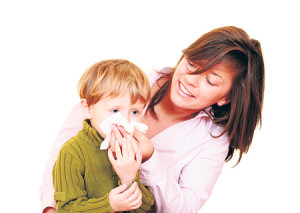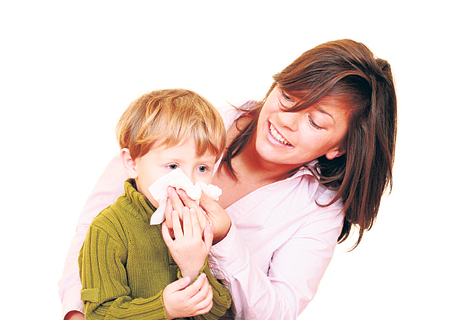Congestion is a usual symptom among children that can be acute (short-term) or chronic. In acute cases, good examples include the flu or common cold while chronic cases include allergies.
The ideal way to completely resolve nasal stuffiness among children is to determine the underlying cause as well as proper management of the symptoms. The condition is often triggered by swollen tissues that line the nose due to inflamed and irritated blood vessels.
What are the causes of acute congestion?
The typical causes of acute or short-term congestion among children include viral infections such as the flu, common cold or sinus infections that can be viral or bacterial.
At the start of a viral infection, the nasal secretions are usually thin and become denser and oftentimes yellowish or greenish in color as the infection progresses. Sinusitis can occur after a viral infection such as common cold or as a result of allergies. The sinus infection often starts as acute but can become chronic if not treated. When it comes to sinusitis, the sinuses become swollen and irritated which is usually due to the trapped mucus. The trapped mucus serves as the ideal breeding place for bacteria, fungi and viruses and this can lead to persistent congestion.

What are the causes of chronic congestion?
Certain types of allergies that affect the nose are referred to as allergic rhinitis. It is important to note that allergies have been the common cause of chronic congestion among children.
Once a child with allergic rhinitis is exposed to an allergen, the body produces histamine as part of the immune reaction that causes swelling and increases the production of mucus that leads to congestion. If not treated, chronic nasal congestion can result to abnormalities in the growth of the facial bones as well as the teeth.
Symptoms
The usual nasal symptoms of a viral infection include congestion, runny nose and sneezing. During a cold, the common symptoms affect the nose, thus nasal congestion is inevitable.
Among younger children, sinusitis often triggers cold-like symptoms including fever and nasal stuffiness. Many parents link the cold-related headaches with sinusitis. On the other hand, the sinuses in the forehead are not fully developed to become infected until 10 years old. In contrast, the facial pain and headaches are the typical symptoms of sinusitis among teenagers. The usual allergy symptoms include itchy and runny nose, congestion, sneezing and postnasal drip.
Treatment
In case common cold is the cause for congestion, you have to make sure that the child gets enough rest and drinks sufficient fluids to allow the body to recover and thin out the nasal secretions.
Chicken soup is also beneficial in alleviating the symptoms of common cold. Take note that cold medications should not be used for children below 6 years old. As for older children, over-the-counter medications can relieve the congestion.
Decongestants are also useful in managing all causes of the condition. These medications work by shrinking the blood vessels that line the nose. Antihistamines are also effective by reducing the amount of mucus particularly in allergies.
The saline nasal drops can also be used on children of all ages. For infants, use a nasal bulb to remove excess mucus. A cool-mist vaporizer can be used at night or a steam for a hot shower can also help in relieving the congestion in children of all ages.

